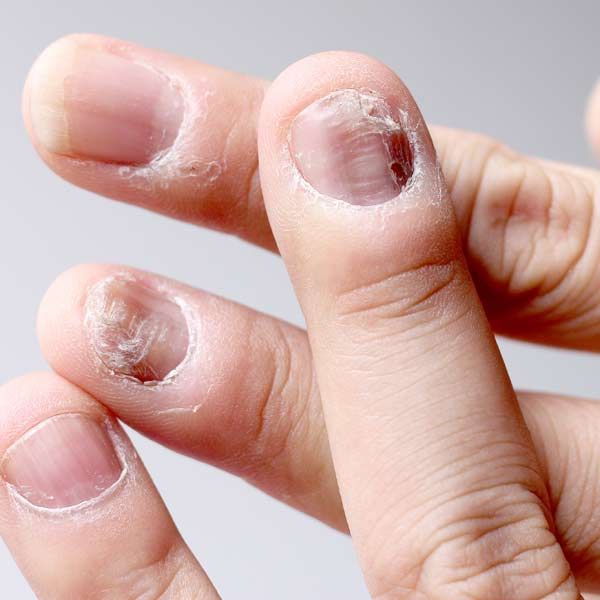Candida Treatments NYC - Dr. John Salerno

Candidiasis Infections Integrative and Functional Medical Treatments by Salerno Wellness in Manhattan, NY, and Connecticut
I know how frustrating it is to live with the ongoing symptoms of a Candida overgrowth. It's inconvenient, annoying, exhausting, and I know you just want to feel better. I have been treating Candida for over 30 years, and I'm happy to say there is a permanent solution to your problems. I take great pride in not only relieving the symptoms you are experiencing, but in correcting the cause of them as well. I will work with you using complementary, functional, and integrative methods to rebalance your body and optimize your health.
-Dr. John Salerno
What is a Candida Infection?
A Candida infection, also known as candidiasis, is a fungal infection caused by an overgrowth of a type of yeast called Candida. This yeast naturally lives in and on our bodies, including in the mouth, throat, gut, and vagina, without causing any problems. However, when the delicate balance of microorganisms in your body is disrupted, Candida can multiply uncontrollably, leading to an infection. This overgrowth can be triggered by various factors such as a weakened immune system, certain medications like antibiotics or corticosteroids, and high-sugar diets.
The resulting infection can manifest in different parts of the body and produce a wide array of persistent and uncomfortable symptoms. Addressing a Candida infection involves not only eliminating the overgrowth but also restoring the healthy balance of your body's microbiome. Understanding this fungal overgrowth is the first step toward effective and targeted treatment. It is a common condition that I see frequently in my practice, affecting both men and women.
Common Symptoms of a Candida Infection
The symptoms of a Candida overgrowth can be widespread and vary greatly from person to person, often mimicking other health conditions. This can make it difficult to diagnose without a comprehensive evaluation of your health history and lifestyle. Recognizing these signs is crucial for seeking the right treatment and finding lasting relief.
- Oral Thrush: This condition presents as white, cottage cheese-like patches on the tongue, inner cheeks, roof of the mouth, or throat. It can cause redness, soreness, and difficulty swallowing, along with a loss of taste.
- Chronic Fatigue and Tiredness: Candida overgrowth can lead to persistent exhaustion that is not relieved by rest. This occurs because the yeast can interfere with nutrient absorption, leading to deficiencies in essential vitamins and minerals like B12 and magnesium.
- Recurring Genital or Urinary Tract Infections: In women, this can manifest as vaginal yeast infections with itching, burning, and a thick, white discharge. Both men and women can experience recurring urinary tract infections (UTIs) as the yeast spreads. Learn more about Vaginal Yeast Infections.
- Digestive Issues: Symptoms such as bloating, constipation, diarrhea, and abdominal cramping are very common. An overgrowth of Candida in the gut can disrupt the normal digestive process and lead to an imbalance in gut flora.
- Sinus Infections: Chronic sinus infections that do not respond well to traditional treatments may be linked to a fungal overgrowth. Symptoms can include congestion, post-nasal drip, and persistent facial pressure.
- Skin and Nail Fungal Infections: Candida can cause skin rashes in moist areas like the armpits and groin, as well as fungal infections of the fingernails and toenails. These conditions often present as athlete's foot or discolored, brittle nails.
- Brain Fog and Difficulty Concentrating: Many patients report feeling "foggy," having poor memory, and struggling to focus. Candida produces toxins, such as acetaldehyde, which can cross the blood-brain barrier and affect cognitive function.
- Intense Sugar and Carbohydrate Cravings: Yeast feeds on sugar, and a significant overgrowth can lead to intense cravings for sugary foods and refined carbohydrates. This creates a vicious cycle, as consuming these foods further fuels the Candida growth.

Christina Rosiello, Nurse Practitioner
Meet Christina Rosiello, our Nurse Practitioner. Christina has worked with Dr John Salerno for years. Christina is well-versed and trained in all of Dr Salerno's integrative and functional medical care practices and has quickly become a favorite with patients. While she is proficient in all aspects of Salerno Wellness care, Christina is particularly popular with patients who are more comfortable discussing issues such as PDMM, PMS, Vaginal Yeast Infections, or other hormonal or health concerns with a female provider.
Contact us to learn more about scheduling an appointment with Christine.
Common Causes of Candida Infections
Several factors can disrupt the body's natural balance, creating an environment where Candida can thrive. A primary cause is the overuse of broad-spectrum antibiotics, which eliminate both harmful and beneficial bacteria in the gut, allowing yeast to multiply without competition. A diet high in refined sugars and carbohydrates also directly feeds the yeast, promoting its growth. Furthermore, a weakened immune system due to chronic stress, illness, or immunosuppressant medications reduces the body's ability to keep Candida in check.
Hormonal imbalances, such as those occurring during pregnancy, with birth control pills, or from hormone replacement therapy, can also contribute to overgrowth. Chronic stress is another significant factor, as it raises cortisol levels, which can suppress the immune system and increase blood sugar. Even environmental factors, like exposure to heavy metals or mold, can place a burden on the immune system and contribute to the problem.
Types of Candida Infections
While many people associate Candida with gut health, the overgrowth can manifest in several distinct forms throughout the body. Each type of infection has unique characteristics and may require a tailored treatment approach.
- Oropharyngeal Candidiasis (Oral Thrush): This infection occurs in the mouth and throat, commonly affecting infants, the elderly, and those with weakened immune systems. It appears as creamy white lesions on the tongue and inner cheeks.
- Genital Candidiasis (Yeast Infection): This is a common infection in women, causing intense itching, burning, and abnormal discharge. While less common, men can also develop genital candidiasis, resulting in an itchy rash on the penis.
- Cutaneous Candidiasis: This type of infection affects the skin, typically occurring in warm, moist areas like the armpits, groin, and under the breasts. It results in a red, itchy rash that can sometimes form blisters or pustules.
- Invasive Candidiasis: This is a serious, systemic infection where the Candida yeast enters the bloodstream and can spread to vital organs like the heart, brain, eyes, and bones. It is a life-threatening condition that primarily affects hospitalized or severely immunocompromised individuals.
- Candidal Onychomycosis: This is a fungal infection of the nails, causing them to become discolored, thickened, and brittle. It can affect both fingernails and toenails and is often persistent and difficult to treat with topical creams alone.

Candidates for Treatment by Dr. John Salerno
Ideal candidates for my treatment approach are individuals who have been struggling with chronic, unexplained symptoms and are frustrated with the limitations of conventional medicine. These patients often experience a combination of digestive issues, fatigue, brain fog, skin problems, and recurring infections that have not responded to standard treatments. They are individuals who suspect an underlying issue, like Candida overgrowth, is at the core of their health problems. My practice is suited for those seeking a comprehensive, whole-body approach rather than a quick fix that only addresses one symptom at a time.
Patients who are motivated to make dietary and lifestyle changes to support their healing journey will find the most success with my integrative protocols. If you are tired of being told your symptoms are "all in your head" and are ready to uncover the root cause of your illness, you are an excellent candidate for my care.
Related Medical Conditions That Can Be Treated
A persistent Candida overgrowth is often linked to or can exacerbate other underlying medical conditions. By addressing the root fungal issue, we can often see significant improvement in these related health problems. A functional medicine approach allows me to connect these seemingly separate issues and treat the body as a whole system.
- Leaky Gut Syndrome: Chronic Candida can damage the intestinal lining, leading to increased intestinal permeability, or "leaky gut." This allows undigested food particles and toxins to enter the bloodstream, triggering systemic inflammation and immune reactions.
- Autoimmune Diseases: The systemic inflammation caused by Candida and a leaky gut can be a trigger for autoimmune conditions, such as Hashimoto's thyroiditis, rheumatoid arthritis, and psoriasis. By reducing the fungal load and healing the gut, we can help modulate the immune response.
- Fibromyalgia and Chronic Fatigue Syndrome: The widespread pain, fatigue, and cognitive issues associated with these conditions often overlap with Candida symptoms. Treating the underlying fungal overgrowth can significantly reduce the overall toxic burden on the body and alleviate these debilitating symptoms.
- Mood Disorders: The gut-brain axis plays a critical role in mental health, and toxins produced by Candida can affect neurotransmitter function. Addressing the gut imbalance can often lead to improvements in anxiety, depression, and mood swings.
How Conventional Medicine Treats Candida Infections
The conventional medical approach to treating Candida infections typically focuses on managing the acute symptoms with prescription antifungal medications. For localized infections, such as oral thrush or vaginal yeast infections, doctors often prescribe topical creams, suppositories, or oral tablets, like fluconazole (Diflucan). These medications can be effective at eliminating the immediate infection and providing temporary relief from symptoms.
However, this approach often fails to address the underlying reasons why the Candida overgrowth occurred in the first place. Once the course of medication is finished, the infection frequently returns because the root causes, such as poor diet, gut imbalance, or a compromised immune system, have not been corrected. This can lead to a frustrating cycle of recurring infections and repeated courses of antifungal drugs, which can themselves contribute to antifungal resistance over time.
How Dr. John Salerno Treats Candidiasis Infections
My approach to treating Candida infections is fundamentally different, as it is designed to address the root cause and restore the body's natural balance for long-term health. We begin with comprehensive testing, which may include blood, stool, or urine analysis, to confirm the overgrowth and identify any co-existing issues like leaky gut or nutritional deficiencies. Treatment involves a multi-faceted strategy, starting with a targeted anti-Candida diet that eliminates sugars, refined carbohydrates, and other foods that fuel yeast growth. I then use a combination of prescription-strength antifungal agents and powerful natural botanicals to effectively eradicate the overgrowth from the gut and other affected areas.
Concurrently, we work to rebuild a healthy gut microbiome with high-potency probiotics and support the immune system with targeted nutritional supplements and IV therapy. My goal is not just to kill the yeast but to create an internal environment where it can no longer thrive.
Possible Side Effects of Treatment
As your body begins to eliminate the Candida overgrowth, you may experience what is known as a Herxheimer reaction, or "die-off." This temporary reaction is caused by the release of toxins from the dying yeast cells. Symptoms can include headache, fatigue, joint and muscle pain, skin breakouts, and a temporary worsening of your original symptoms. While uncomfortable, this is actually a positive sign that the treatment is working effectively.
I guide my patients through this phase with supportive therapies designed to help the body detoxify and minimize discomfort, such as binders to absorb toxins and liver support supplements. These side effects are typically short-lived and resolve as your body clears the toxins and begins to heal.
What Can Happen if Left Untreated?
If a Candida overgrowth is left untreated, it can lead to a host of chronic and progressively severe health issues. The persistent overgrowth in the gut can severely damage the intestinal lining, causing leaky gut syndrome and widespread systemic inflammation. This inflammation is a known trigger for autoimmune diseases, where the body's immune system begins to attack its own tissues. Over time, the constant toxic load from the yeast byproducts can overwhelm the liver and other detoxification organs, leading to chronic fatigue, brain fog, and mood disorders like anxiety and depression.
In severe cases, the fungal infection can become invasive, entering the bloodstream and spreading to vital organs. This systemic infection, known as invasive candidiasis, is a serious medical emergency that can be life-threatening if not addressed promptly. Ignoring a Candida problem allows it to become more entrenched, making it more difficult to treat later on.
Patient Case Study
Sarah, a 38-year-old marketing executive, came to my office with a decade-long history of debilitating symptoms. She suffered from constant bloating and gas, brain fog that affected her performance at work, and overwhelming fatigue that left her exhausted by midday. She also experienced recurring vaginal yeast infections and had developed a persistent rash on her skin. Sarah had seen multiple specialists who had prescribed various medications, including antacids and several rounds of antifungals, but her relief was always temporary. Her symptoms would inevitably return, leaving her feeling hopeless and frustrated. After a comprehensive evaluation and advanced functional testing, we confirmed a significant Candida overgrowth in her gut along with leaky gut syndrome and several nutritional deficiencies.
We immediately started her on a personalized protocol that included a strict anti-inflammatory diet, a combination of botanical and prescription antifungals, and targeted IV nutrient therapy to boost her immune system and energy levels. Within a few weeks, Sarah reported that her brain fog began to lift, and her digestive symptoms started to improve. Over the next three months, her energy levels returned, her skin cleared up, and her recurring infections ceased completely. Today, Sarah feels better than she has in years and has the tools to maintain her health in the long term.
Why Patients Choose Dr. John Salerno for Candida Treatments in NYC and CT
Patients choose me, Dr. John Salerno, because they are seeking a physician who will listen to their story and look beyond their surface-level symptoms. With over 30 years of pioneering work in functional and integrative medicine, I offer a depth of experience that is rare in this field. My practice is built on the principle of treating the patient, not just the disease. I utilize advanced diagnostic testing to uncover the complex, interconnected root causes of chronic illness, such as hidden infections, hormonal imbalances, and nutritional deficiencies.
Patients appreciate this detailed, evidence-based approach that provides clear answers where they previously had none. They trust my ability to create sophisticated, personalized treatment plans that combine the best of conventional and complementary therapies. Ultimately, they come to me for lasting solutions and a genuine partnership in reclaiming their health and vitality.
Contact Dr. John Salerno For A Consultation on Finally Resolving your Candida Infection by Addressing the Causes of the Symptoms, in Manhattan, NY, and Connecticut
Struggling with the chronic and disruptive symptoms of a Candida infection can be an isolating and frustrating experience. From digestive distress and chronic fatigue to brain fog and recurring infections, this fungal overgrowth can significantly impact your quality of life. The conventional approach of simply prescribing antifungal medication often provides only temporary relief without addressing the underlying cause.
At Salerno Wellness, my focus is on identifying and correcting the root imbalances that allowed the Candida to thrive in the first place. Through a personalized, integrative approach that includes targeted nutrition, advanced detoxification, and immune support, we can eradicate the overgrowth and restore your body’s health. If you are ready to move beyond managing symptoms and achieve lasting wellness, I am here to help. Contact Salerno Wellness today to schedule your consultation and take the first step toward reclaiming your health.
Please contact us today.
Additional References
- Fungal Disease-Specific Research - National Institute of Allergy and Infectious Diseases
- Candida Infection of the Skin - National Library of Medicine



